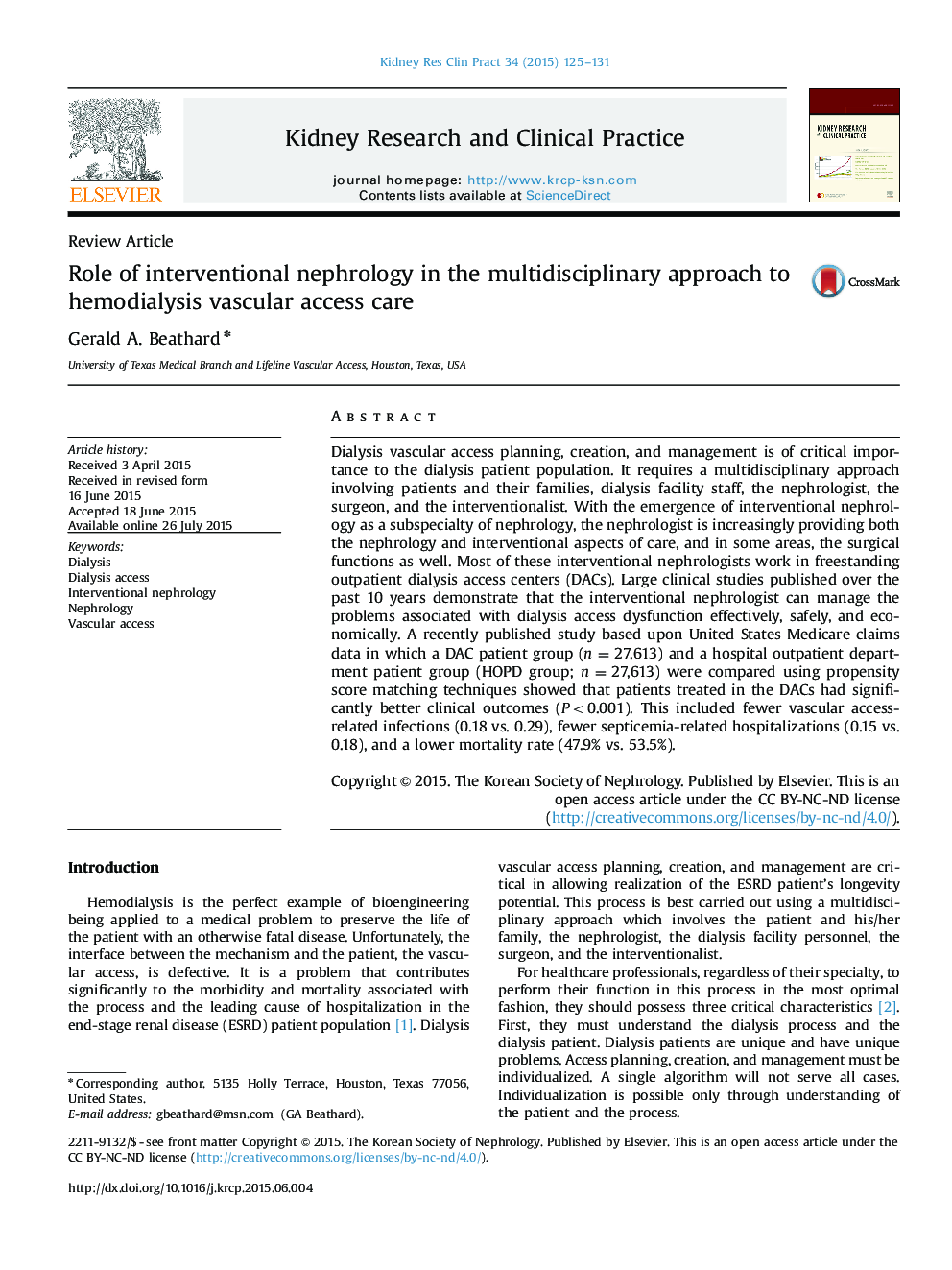| Article ID | Journal | Published Year | Pages | File Type |
|---|---|---|---|---|
| 3890834 | Kidney Research and Clinical Practice | 2015 | 7 Pages |
Dialysis vascular access planning, creation, and management is of critical importance to the dialysis patient population. It requires a multidisciplinary approach involving patients and their families, dialysis facility staff, the nephrologist, the surgeon, and the interventionalist. With the emergence of interventional nephrology as a subspecialty of nephrology, the nephrologist is increasingly providing both the nephrology and interventional aspects of care, and in some areas, the surgical functions as well. Most of these interventional nephrologists work in freestanding outpatient dialysis access centers (DACs). Large clinical studies published over the past 10 years demonstrate that the interventional nephrologist can manage the problems associated with dialysis access dysfunction effectively, safely, and economically. A recently published study based upon United States Medicare claims data in which a DAC patient group (n = 27,613) and a hospital outpatient department patient group (HOPD group; n = 27,613) were compared using propensity score matching techniques showed that patients treated in the DACs had significantly better clinical outcomes (P<0.001). This included fewer vascular access-related infections (0.18 vs. 0.29), fewer septicemia-related hospitalizations (0.15 vs. 0.18), and a lower mortality rate (47.9% vs. 53.5%).
